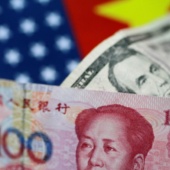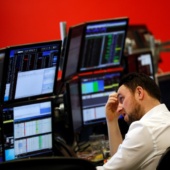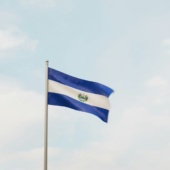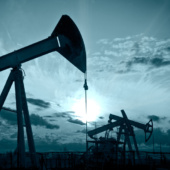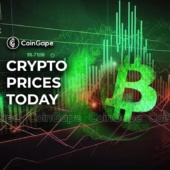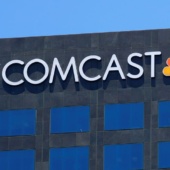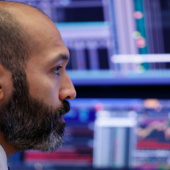Hungarian Prime Minister Viktor Orban attends ADF Talks as part of the Antalya Diplomacy Forum (ADF) at NEST Congress and Exhibition Center in Antalya, Turkiye on March 01, 2024.
Emin Sansar | Anadolu | Getty Images
Europe alone cannot shoulder the financial strain of supporting Ukraine against the ongoing Russian invasion, Hungarian leader Viktor Orban said Friday, warning that closely-allied President-elect Donald Trump will likely steer Washington out of the conflict.
“Europe alone cannot finance this war. Some people still want to, they still want to send enormous amounts of money to this otherwise lost war, but there is a growing number of people who remain silent, even though they used to be loud,” Orban told national radio, in Google-translated comments reported by state-owned media outlet Magyar Tavirati Iroda.
Speaking a day after hosting European leaders at the European Political Community summit in Budapest, Orban stressed that a “peace budget” must be prepared — and that this step could now be taken, with Trump due to assume leadership of the White House, after defeating Democrat contender Kamala Harris in national elections earlier this week.
“The Americans will get out of the war in Ukraine, they will not encourage it, they will not say that the war is a good thing,” Orban predicted, adding, “Many things are said about Donald Trump, but no one questions one thing, that he does not start a war. He is a person who hates war, a real businessman who thinks that life and things go well when there is no war.”
Ukraine has historically depended on foreign humanitarian and military aid to resist Russia’s two-year invasion, with the U.S. and the EU providing the lion’s share of this assistance.

The Kiel Institute of the World Economy estimates that EU member states and institutions (such as the European Investment Bank and European Commission) have spent a combined 161.11 billion euros ($173.57 billion) in military, humanitarian and financial support since the February 2022 start of the war to Aug. 31 this year, with the U.S. contributing $108 billion over the period.
On Thursday, Slovakian Prime Minister Robert Fico — whose country heavily relies on Russian hydrocarbons — questioned the European funding agenda.
“When there is money to support the senseless killing of Slavs in Ukraine, we must find an enormous amount of money in the EU to fight illegal migration, which is an existential threat to Europe as such,” he said in a Google-translated Facebook update.
The Trump agenda
A longtime Trump ally, Orban earlier this week hailed the Republican politician’s election as a “much needed victory for the world” and “the biggest comeback in U.S. political history.” The two leaders have enjoyed a deep relationship since Trump’s first 2016-2021 presidential term, with Orban even boasting a “Make Europe Great Again” motto when his government assumed the rotating presidency of the European Union over this summer — a slogan reminiscent of Trump’s first campaign mantra.
The two politicians have both historically called for an urgent end to the conflict in Ukraine, which Orban on Friday credited as a contributing factor to the inflationary spike of recent years, given a surge in energy prices after Western nations implemented sanctions against Russian oil and gas exports.
A self-proclaimed peacemaker, Orban has repeatedly called for a cease-fire and this summer debuted his EU presidential term with visits to Ukraine, Russia and Moscow-allied China — to the ire of European leaders, who condemned the unexpected engagement with the Kremlin as unrepresentative of the EU position.
Trump has meanwhile suggested he might put an end on the massive aid packages to Kyiv enshrined during outgoing President Joe Biden’s administration, painting Ukrainian leader Volodymyr Zelenskyy as “maybe the greatest salesman of any politician that’s ever lived” in terms of coaxing foreign aid.
The President-elect has also previously sharply criticized that some NATO members supplied lackluster defense contributions below the alliance’s 2% GDP investment guideline — which NATO has been working to remedy. The U.S. accounted for the largest number of military personnel out of all partners in the traditionally Washington-led NATO alliance with almost 1.33 million troops, Statista said in July.
Already, Ukraine has entered the agenda of transatlantic talks, with EU Commission President Ursula von der Leyen on Thursday signaling she broached this topic, broader defense and energy with the President-elect over a congratulatory phone call.

Critically, Trump previously vowed to put an end to the hostilities in Ukraine within 24 hours of assuming office, without detailing how – sparking concerns about whether Kyiv will be pressured or sufficiently starved of resources to cede occupied territory to Russia. Ukraine has previously rejected the possibility of either surrendering ground or beginning diplomatic talks while Russian troops remain within its borders.
A truce without security guarantees for Ukraine would only amount to a gateway for further Russian occupation, Zelenskyy stressed while in Budapest, criticizing the “dangerous rhetoric” of certain attending state leaders.
“Merely achieving a ceasefire is a model that we hear from some leaders here, from Brazil, China, and it’s important that we definitely hear it from Russia. This is a great model for Russia,” the leader said, according to Ukrainian state news outlet Ukrinform.
Some European heads of state remain staunchly committed to ongoing support for Ukraine.
“Either safety or solidarity, supporting Ukraine or investing in Germany’s future — creating this contradiction is wrong, dangerous, and entirely unnecessary,” German Chancellor Olaf Scholz said Wednesday, according to a CNBC translation, even as his ruling three-way coalition dissolved earlier in the week amid differences over the outlook for the national budget that included the extent of aid for Ukraine.
— CNBC’s Sophie Kiderlin contributed to this report

